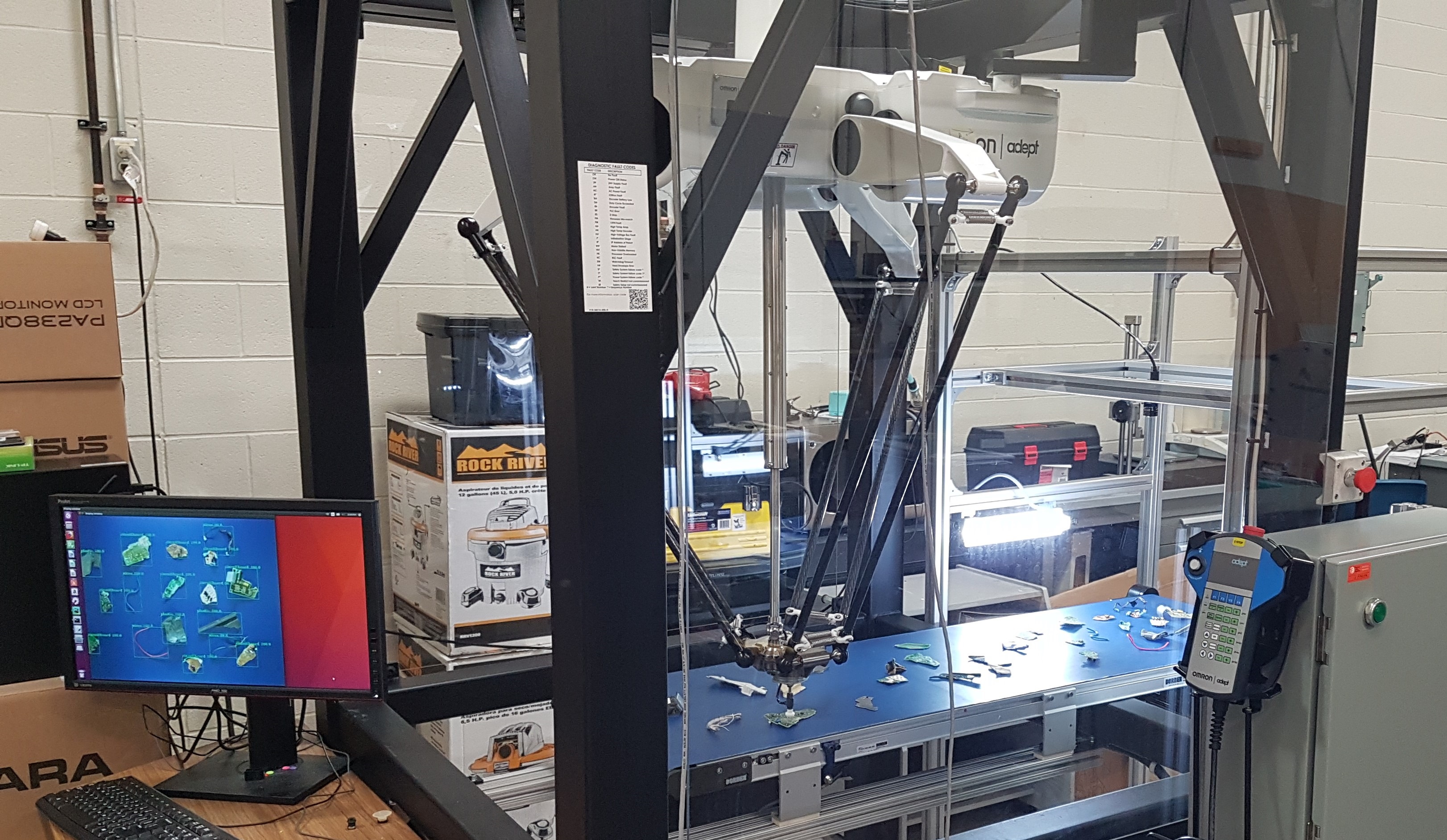Conestoga was recently awarded five grants totaling $325,000 from the Natural Sciences and Engineering Research Council of Canada (NSERC). The grants will support e-waste recycling research activities led by Dr. Hamid Karbasi, Conestoga’s NSERC Industrial Research Chair for Colleges in Advanced Recycling Technologies for Waste Electrical and Electronic Equipment (WEEE).

This intelligent robotic cell to sort shredded electronic waste is under development in Dr. Karbasi's applied research lab.
“WEEE has become the fastest growing sector of solid waste with 40 to 50 million tons generated globally each year. Estimates suggest only 15 to 20 per cent of it is recycled,” explained Karbasi. “Through the support of NSERC’s Engage Grants and Applied Research and Development grants we can expand our applied research activities and continue collaboration with our industry partners to develop new solutions for e-waste recycling.”
Karbasi has been working with faculty, students and industry partners to explore technology solutions and products that can be commercialized by local equipment manufacturers to increase e-waste treatment, recycling and landfill diversion rates.
One of the NSERC Applied Research and Development grants received will be used to develop a working prototype system to sort and process button cell batteries, and the other will be used to develop a terahertz-based sorting system for black plastics which, globally, account for five million tons of e-waste each year.
Most industrial recyclers cannot detect the polymer composition of black plastics, but Karbasi’s team will develop an industry-ready working prototype that will.
“The technology we are developing for black plastics can be added to existing optical sorting machines already used widely by recycling companies,” said Karbasi. “Canadian companies will directly profit from this innovation and place Canada at the leading edge of recycling technology.”
Through NSERC’s Engage grants, Karbasi will also launch studies into the repurposing, remanufacturing and recycling of the lithium-ion batteries used in electric vehicles. Other studies will investigate different technologies for improving the efficiency of sorting household batteries for recycling, and the robotic sorting of shredded waste electronics.
“NSERC is pleased to support these research projects at Conestoga College which have the potential to divert from landfills and increase e-waste recycling," said Bert van den Berg, director, Colleges, Commercialization and Portfolio Policy. "These projects support the potential for Canada to become a global leader in e-waste recycling and are expected to directly benefit the Canadian economy, while also supporting sustainable development.”
For more information, contact Hamid Karbasi.
